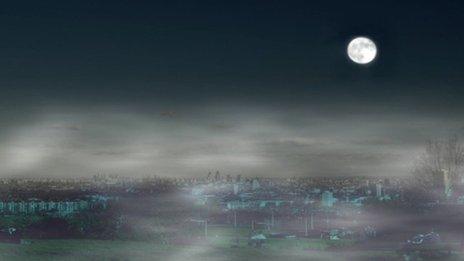UK airports returning to normal after fog disruption
- Published
Ed Thomas reports on a day of cancelled flights
Airports across the UK are returning to normal after three days of disruption due to fog.
A small number of departures were cancelled on Tuesday morning at Heathrow, London City, Belfast and Leeds Bradford.
But a Met Office "be aware" warning of dense fog until midday on Tuesday was lifted early.
Heathrow cancelled 129 flights on Monday, with problems compounded by fog in much of western Europe.
Fog was forecast for the north Midlands, northern England and southern Scotland on Tuesday morning, but the impact on travel was relatively minor.
Why does fog still disrupt flights?
Heathrow said it had cancelled 11 flights and London City eight.
Two flights were also cancelled at Belfast City, along with a small number at Leeds Bradford., external
Heathrow said on Twitter:, external "Visibility has improved today. We still advise you consult your airline before flying."
Gatwick also tweeted:, external "Fog is clearing this morning, however passengers should continue to check with their airline for the status of their flight."
On the roads, Traffic Scotland, external warned drivers in the Falkirk, Fife and Strathclyde areas to take care in foggy conditions during the morning rush hour.
On Monday:
London City, external airport saw cancellations and delays, with further disruption expected to continue into Tuesday
Manchester, external and Southampton, external both cancelled more than 20 flights, and there were also cancellations at Gatwick, external, George Best Belfast City, external and Cardiff
Brussels, Frankfurt, Hamburg, Amsterdam and Paris Charles De Gaulle were among the European airports affected
Monday's problems followed disruption on Sunday at some airports, including Heathrow, where about 50 flights were cancelled
Drivers were warned to take care on the roads. A 40mph speed restriction on the Forth Road Bridge led to long tailbacks, external
Ferries across the Mersey were also suspended for several hours, external
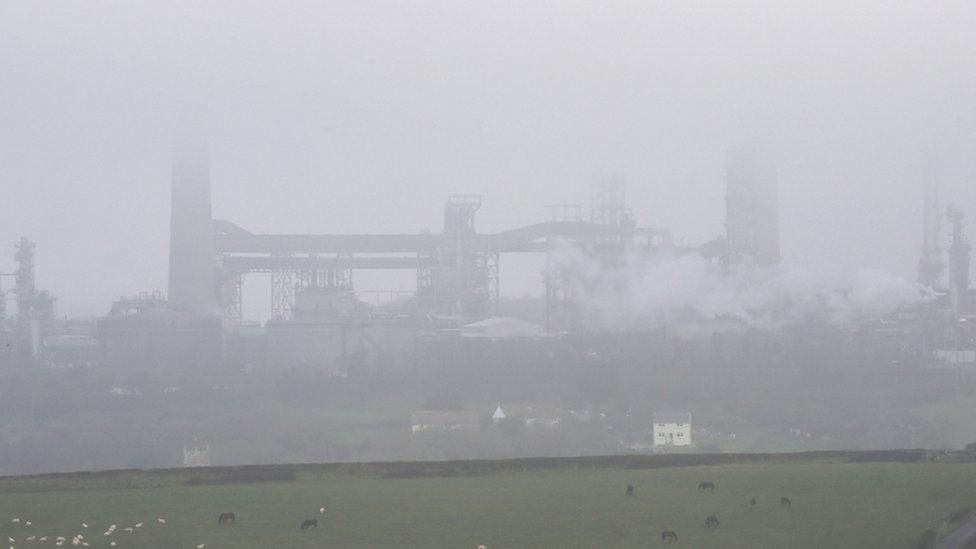
Fog engulfed the towers of the oil refinery in Pembroke, Wales, on Monday
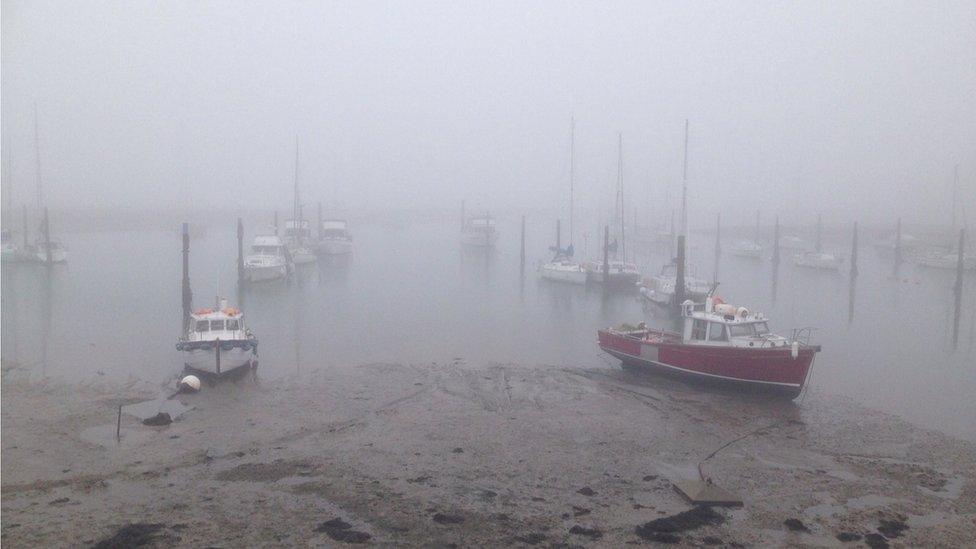
BBC reader Cyndi Pitcher sent in this picture taken from the Millennium bridge in Gosport, Hampshire
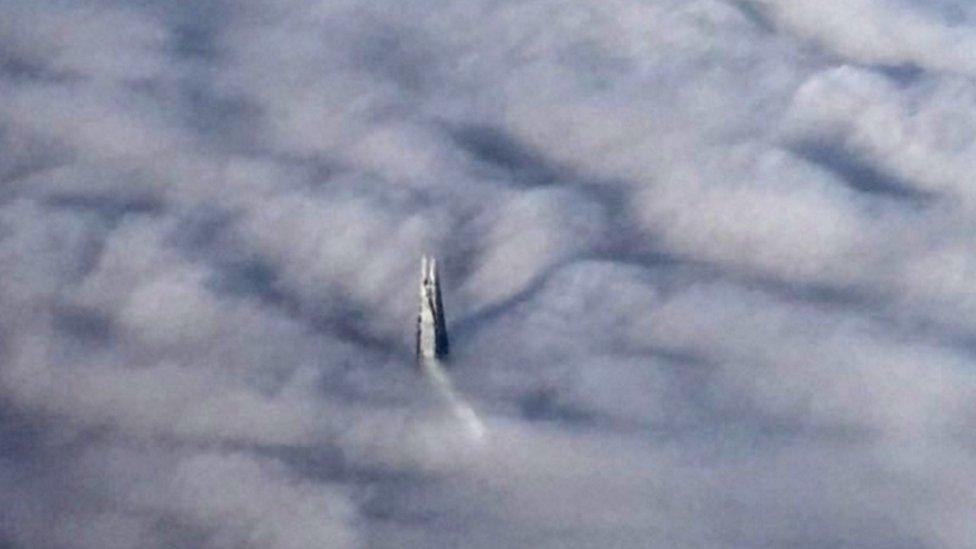
An aerial photograph shows the top of the shard just visible above the blanket of fog
A family stranded in Spain were told they will have to fly back from Alicante to Southend instead of Valencia to Gatwick on Wednesday because of the fog in the UK.
Marina Norris, from Brighton, said: "We have to find our own way to Alicante and our own way back from Southend. We have absolutely no other support."
Terry Halpin told the BBC he was in a hotel near Gatwick, hoping to fly home to Dublin with his two children. He said there had been very little information or help from his airline or airport staff.
He said: "I've two kids here, I don't know this part of England and they just said, 'look, you have to look after yourself'."
Louise Baker, from Bridgend, has been stuck in Paris with her family since Sunday night.
She said: "No food, no drink, no nothing. We've been left here as if we don't exist by our company."

Why is it so foggy?
BBC Weather explains how fog forms
By Steve Cleaton, BBC Weather forecaster
The sort of fog we've been experiencing is known as radiation fog.
It tends to form most readily on clear nights with light winds - conditions that are usually associated with high pressure systems, or anticyclones.
Anticyclones initially tend to bring a good deal of settled and dry weather by day, but as the sun goes down in the evening, the air temperature steadily drops and eventually cools to a point where any moisture condenses out into fog - hence why the foggiest conditions are often found towards dawn.
There has also been very little wind to help clear it and as we're into November the sun is lower in the sky, so it's weaker as a heat source, meaning the fog has persisted all day in some areas.

Driving in fog
Motoring organisation the AA advises:
According to the Highway Code,, external you must use headlights when visibility is seriously reduced - generally when you cannot see for more than 100m (328ft), or the length of a football pitch
There's no obligation to use fog lights but if your car is involved in an accident and they weren't on, then your insurer may ask questions
Generally it's better to be safe than sorry, so use fog lights when appropriate, but don't keep switching them on and off - this can be a distraction to other drivers so wait for a consistent improvement in visibility before turning them off
Be able to stop within the distance you can see clearly

Have you been affected by the foggy conditions? You can tell us your story by emailing haveyoursay@bbc.co.uk, external.
Please include your telephone number if you are willing to speak to a BBC journalist.
You can also contact us in the following ways:
WhatsApp: +44 7525 900971
Tweet: @BBC_HaveYourSay, external
Send pictures/video to yourpics@bbc.co.uk, external
Text an SMS or MMS to 61124 or +44 7624 800100
- Published2 November 2015
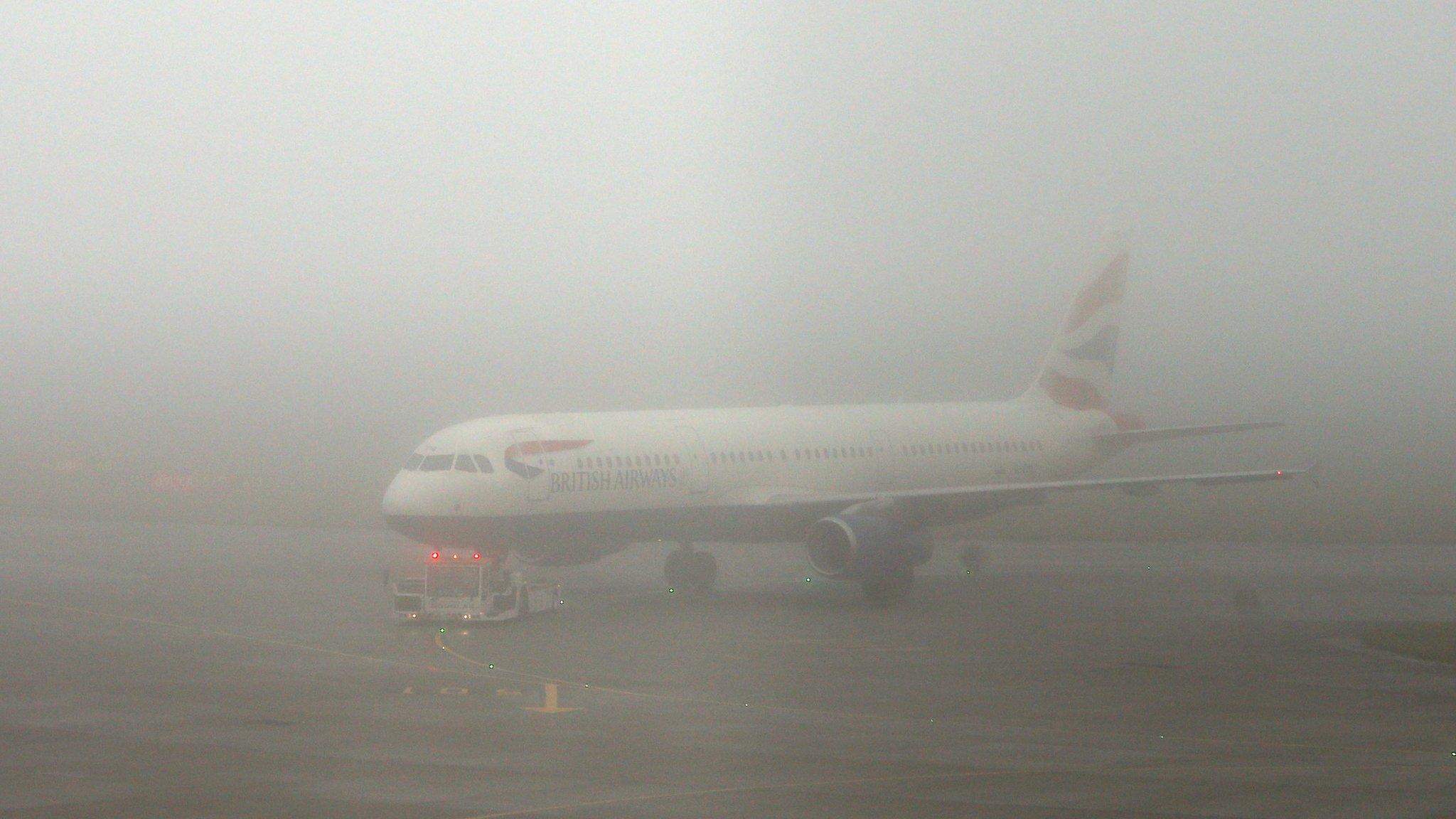
- Published2 November 2015
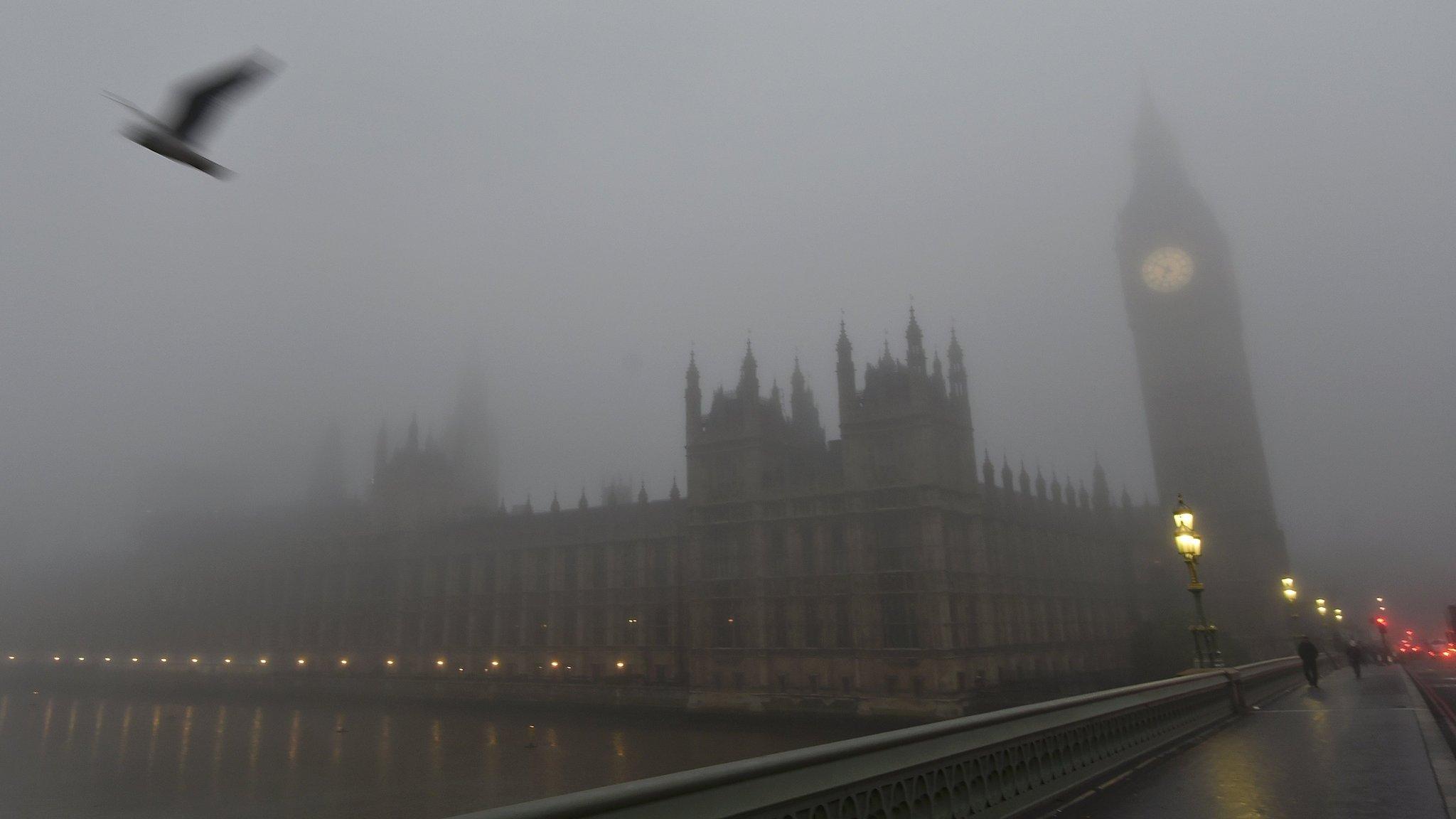
- Published2 November 2015
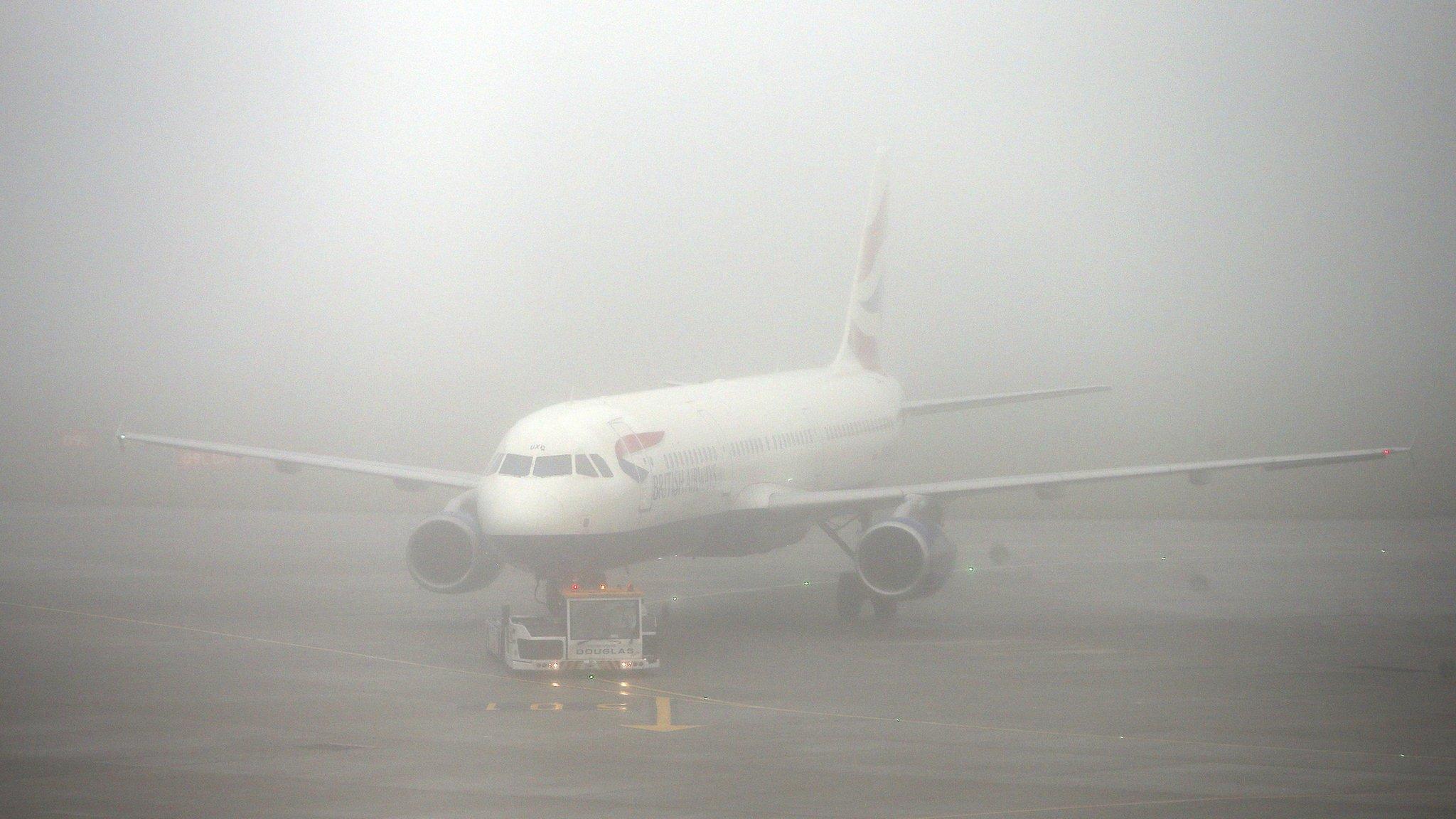
- Published2 November 2015
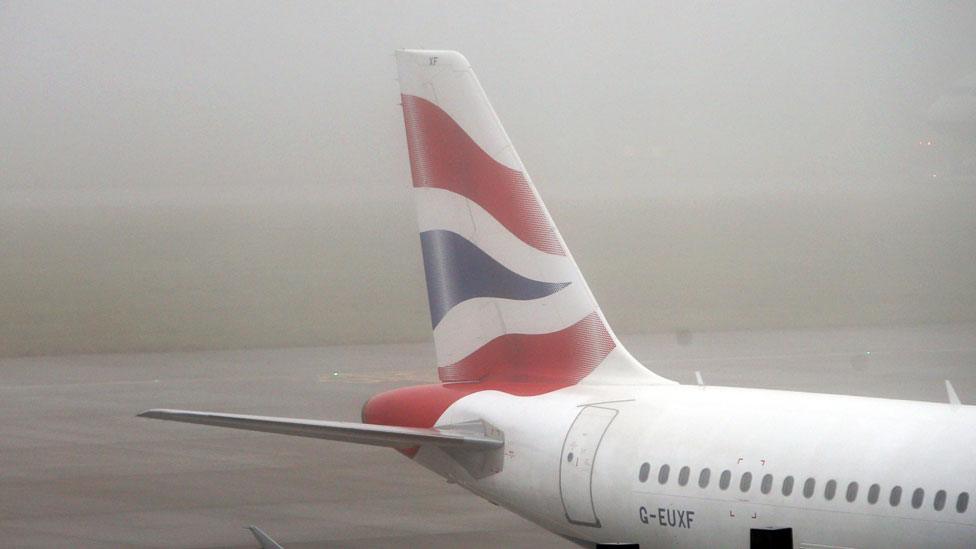
- Published2 November 2015
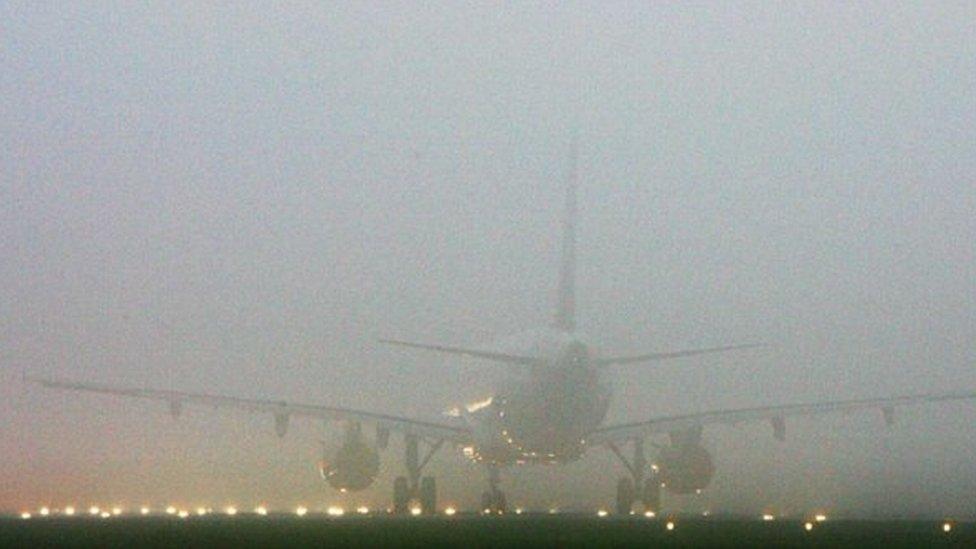
- Published1 November 2015
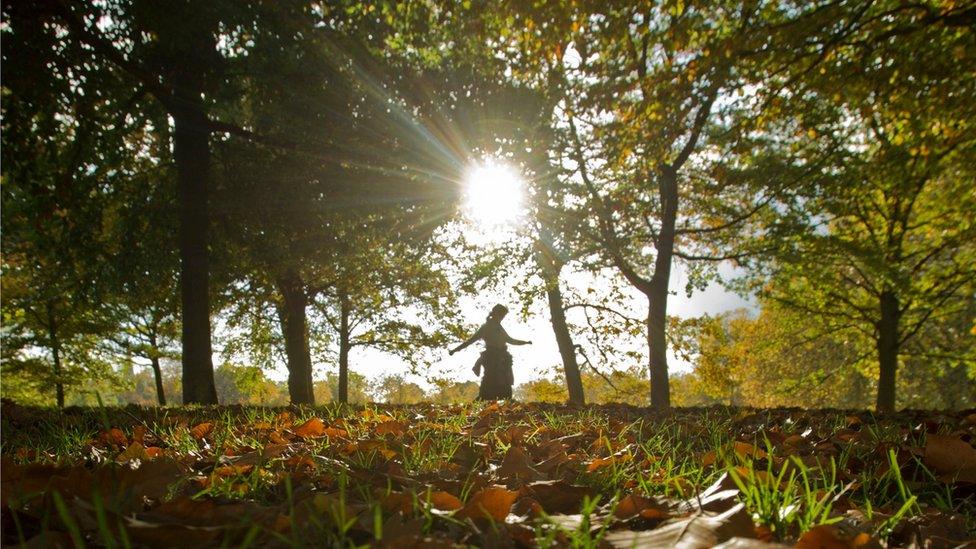
- Attribution
- Published7 October 2013
